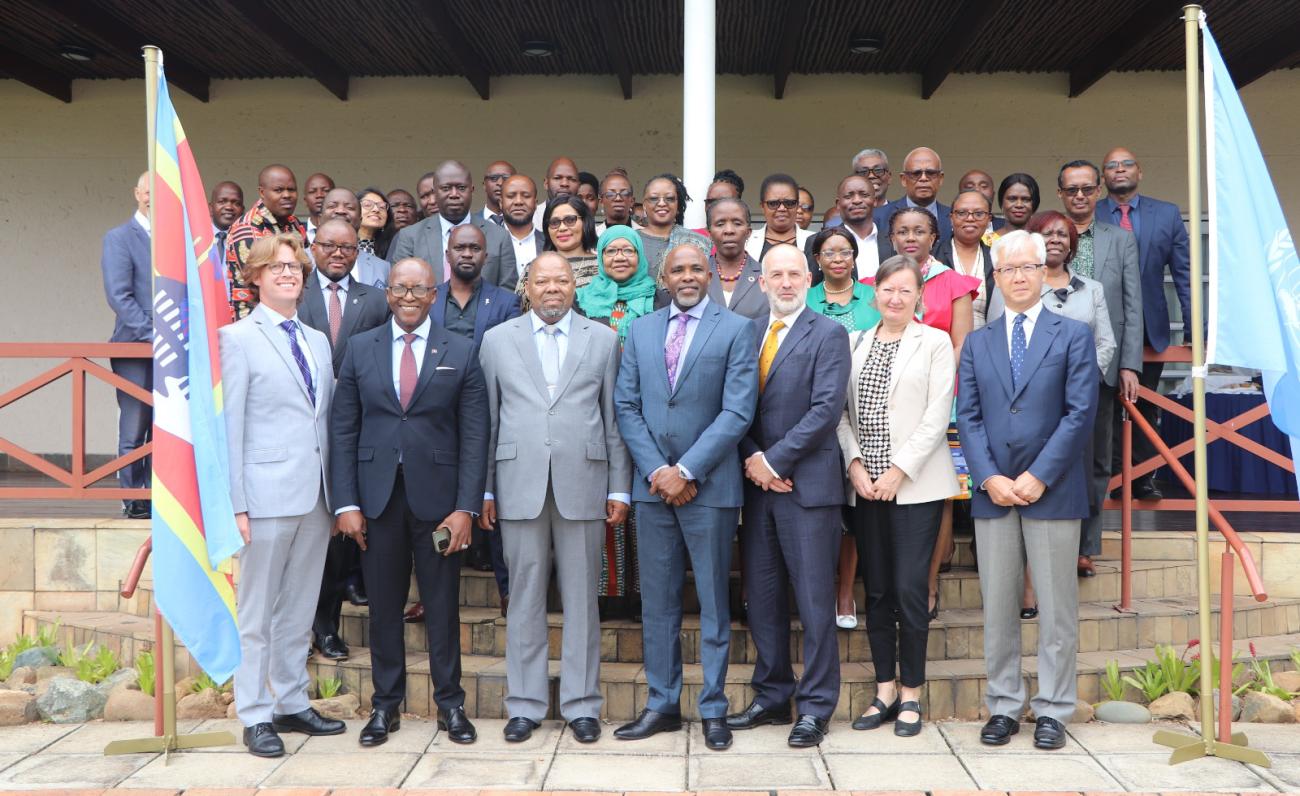Ezulwini, January 31, 2024 - The Government of Eswatini and the United Nations Joint National Steering Committee (J-NSC) convened for a high-level meeting at the Royal Villas, Ezulwini, to assess the advancement of the UN Sustainable Development Cooperation Framework (UNSDCF 2021-2025).
The J-NSC serves as the foundation for the UN's accountability to the Government and the people of Eswatini. The annual review of the Cooperation Framework, aimed at contributing to "a prosperous, just, and resilient Eswatini where no one is left behind," was conducted through four Results Groups aligned with the strategic document's four outcome areas:
- Promoting Sustainable and Inclusive Economic Growth
- Investing in Human Resources and Social Development
- Accountable Governance, Justice, and Human Rights
- Strengthening Natural Resource Management, Climate Resilience, and Environmental Sustainability
Seventeen UN agencies, coordinated by the UN Resident Coordinator’s Office, collaboratively implement the Cooperation Framework in partnership with the Government, development partners, civil society, private sector, and other sectors.
Dr. Thambo Gina, Minister of Economic Planning and Development, who co-chairs the committee with UN Resident Coordinator Mr. George Wachira officially opened the meeting.
Dr. Gina highlighted the meeting's significance, aligning with the Government's programme of action for the next five years, post the people’s parliament (Sibaya) and Cabinet deliberations.
Acknowledging the importance of international cooperation, Dr. Gina emphasized its role in assisting Eswatini in achieving Agenda 2030 and the Sustainable Development Goals (SDGs). He expressed confidence that Eswatini will make substantial progress in SDG targets by 2030, particularly in achieving 100 percent electrification and potable water access.
Mr. Wachira, the UN Resident Coordinator, emphasized the Cooperation Framework's role as the cornerstone of the UN's accountability to the Government and people of Eswatini. He extended appreciation to partners for their contributions while highlighting the challenges faced by middle-income countries like Eswatini, such as the reduction in Overseas Development Aid (ODA) and the impact of global challenges, including COVID-19, conflicts, and climate change emergencies.
Recognizing the evolving development funding landscape, Mr. Wachira underscored the UN's commitment to supporting Eswatini through integrated financing assessments and policies. He mentioned ongoing discussions with the Central Bank of Eswatini to co-host a roundtable discussion in March 2024 on policy instruments such as priority sector lending.
The meeting drew senior Government officials, development partners, civil society, academia, private sector representatives, and individuals with disabilities, reflecting a comprehensive engagement in the development process. UN heads of agencies, resident and non-resident, including their technical staff were also part of the meeting.


















